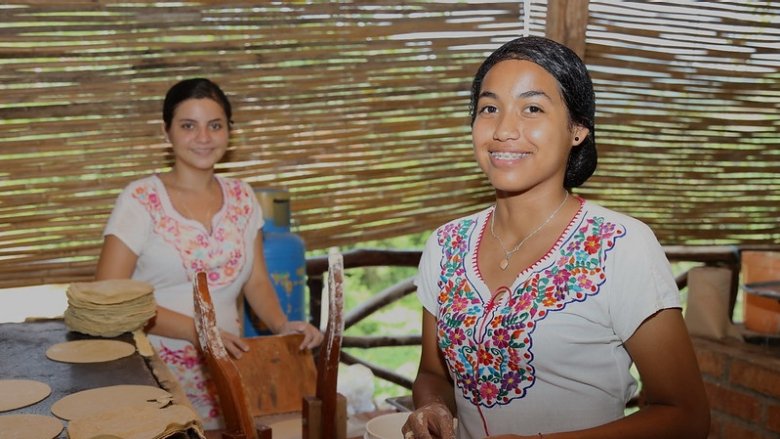Nery Matías Ramos is a young Mayan from the Mam ethnic group in the community of Buena Vista, in Todos Santos Cuchumatán, Guatemala. Since he was a child, he has been interested in forests, and now he sees very clearly the problems that climate change is causing to the people in his community.
"Climate change has affected the communities a lot. We have become aware of this problem because of the issue of agricultural production. Before you could plant a crop and it would give you a bigger harvest; the rains came at the right time, the light conditions were more adequate, and the soil did not change much, but now the drought has greatly affected agriculture," says Nery, who is 24 years old and about to finish his agronomy degree in the department of Huehuetenango, two hours from Buena Vista.
Nery is one of thousands of young indigenous people who want to add their voices and actions to the efforts to mitigate the impact of climate change in Latin America. But it is not easy.
New voices rising to the climate challenge
While the challenge is great, new generations of indigenous peoples, young people like Nery, are beginning to take action with the support of local organizations and universities in the region.
At the age of 17, Nery met the Utz-Che' Association, a network of more than 40 local communities and farmers charged with protecting Guatemala's lands and forests and constantly on the lookout for national policies to recognize collective rights and climate change, which in 2019 was responsible for the acute food insecurity of 34 million people in 25 countries around the world.
Thus, Nery began collaborating with the Utz-Che' Association, which must mediate with external actors to ensure respect for forests, lands and indigenous communities. They also generate strategic alliances that are important for the development of the population without violating cultural identity.
For Germán Freire, Senior Social Development Specialist for Latin America and the Caribbean at the World Bank, indigenous communities play a fundamental role in the work to mitigate global warming.
"Indigenous peoples are key players in the climate agenda because, although they make up only 5% of the population, they manage about 80% of the world's biodiversity and are the guarantors of large tracts of forest and ecosystems critical to the planet's well-being," he explains, citing the example of the Amazon rainforest. "Most of the Amazon has been subject to indigenous agroforestry management practices at some point in its history, and these interventions are still an essential part of the composition and resilience of the rainforest."
Indigenous peoples in Latin America continue to suffer from inequalities and conditions of poverty that hinder their full inclusion in the development of the Latin American region. Centuries of neglect and exclusion mean that, according to the World Bank report entitled "Indigenous Latin America in the 21st Century", at least 43% of the 42 million people who belong to indigenous communities live in poverty, a figure that is more than double the proportion of non-indigenous people living in the same situation.
In addition to inequality and poverty, the impact of climate change is affecting the territories inhabited by indigenous communities, which are home to much of the world's biodiversity. This is despite the fact that these are the populations that contribute the least to global warming.

